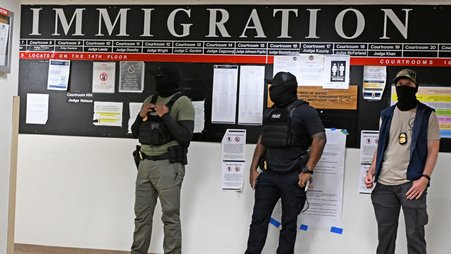Everything old is new again.
In 2022, we noticed a decades-old trend had been revived: State legislatures restricting reporters’ access to the legislative floor. According to a report by the U.S. Press Freedom Tracker, at least four states — Iowa, Kansas, Texas, and Utah — enacted policies or practices in 2022 that limited journalists’ access to their legislatures. In early 2023, the New York State Assembly also refused to roll back pandemic-era restrictions on where reporters could go on the statehouse floor.
Now, Mississippi may be getting into the game of curbing reporters’ access to the place where lawmakers conduct the people’s business. A pair of resolutions recently introduced in the Mississippi Senate would bar journalists from the Senate floor, except for brief periods before and after legislative sessions, and would abolish the press office in the Capitol.
The resolutions’ sponsors have said they’re motivated by concerns about crowdedness and believe that changing technology will still allow reporters to work effectively. But dig just a little bit deeper and the true anti-press motivation comes to the forefront.
One Mississippi newspaper reported, “Sen. Chuck Younger, R, who co-authored the bills, said part of the reason Republicans filed [them] was because he and others feel the press have been too ‘selective’ with stories they choose to write and sources.” The paper also quoted the sponsor of the bills, Sen. Kevin Blackwell, complaining about being close to reporters on the floor and having a camera “stuck in [his] face.”
Despite what Younger and Blackwell may feel, it’s blatantly unconstitutional to bar journalists from a legislative floor to retaliate against them for the news they publish or for daring to take pictures of politicians doing their jobs in public. But at least they’ve made it easy to identify the true reason they want to ban the press from the floor: because they dislike the transparency and news reporting that such access brings.
Though lawmakers in other states haven’t always been as quick to say the quiet part out loud, we have no doubt that they, too, are eager to undermine journalists’ ability to scrutinize them. And Mississippi isn’t the first state to try to punish reporters by withdrawing access to the statehouse floor.
In 2016, for example, Arizona House speaker David Gowan tried to roll out new “security” procedures for accessing the House floor and hallways that would’ve just happened to ban a reporter who had reported critically on Gowan. The speaker backed down after an outcry and legal threat from the First Amendment Coalition.
Concerns about crowds, security, and decorum are the most common fig leaves politicians offer as justifications for banning journalists from legislative chamber floors. But the truth is that journalists have had access to many statehouse floors for decades without causing problems — unless you consider accurate and thorough reporting about the legislative process a problem.
Of course, banning journalists from legislative floors doesn’t make their jobs impossible. In Mississippi, for example, reporters would still be able to report from the gallery. But putting journalists farther away from the action makes reporting harder and means less information for the public.
As the Committee to Protect Journalists put it, “Lawmakers’ whispers, eyerolls, and other hints about the course of debate are no longer visible to journalists” barred from the floor. And unless there are cameras operated by journalists who can call their own shots — as when C-SPAN could choose what to film in the U.S. House of Representatives for a brief period in 2023 — access to the floor is the only way for reporters to observe lawmakers up close and personally.
Restricting journalists’ access to the floor also makes it easier for politicians to hide from reporters and their pesky questions — questions that can hold them accountable to the public. After reporters in Kansas were relegated from that state’s Senate floor, one former lawmaker explained, “The session adjourns and members skedaddle out of there rapidly so it’s hard for journalists to get to them, unlike when they’re on the floor they can immediately get to them.”
Blackwell and Younger, and maybe even some of their fellow lawmakers, may view avoiding the press as a benefit. But with the state legislature set to consider issues that have the potential to reshape people’s lives, Mississippians need reporters more than ever to stay informed and influence their elected officials. If regular people are to have a seat at the table in Jackson, Mississippi, journalists must have a place on the floor.





